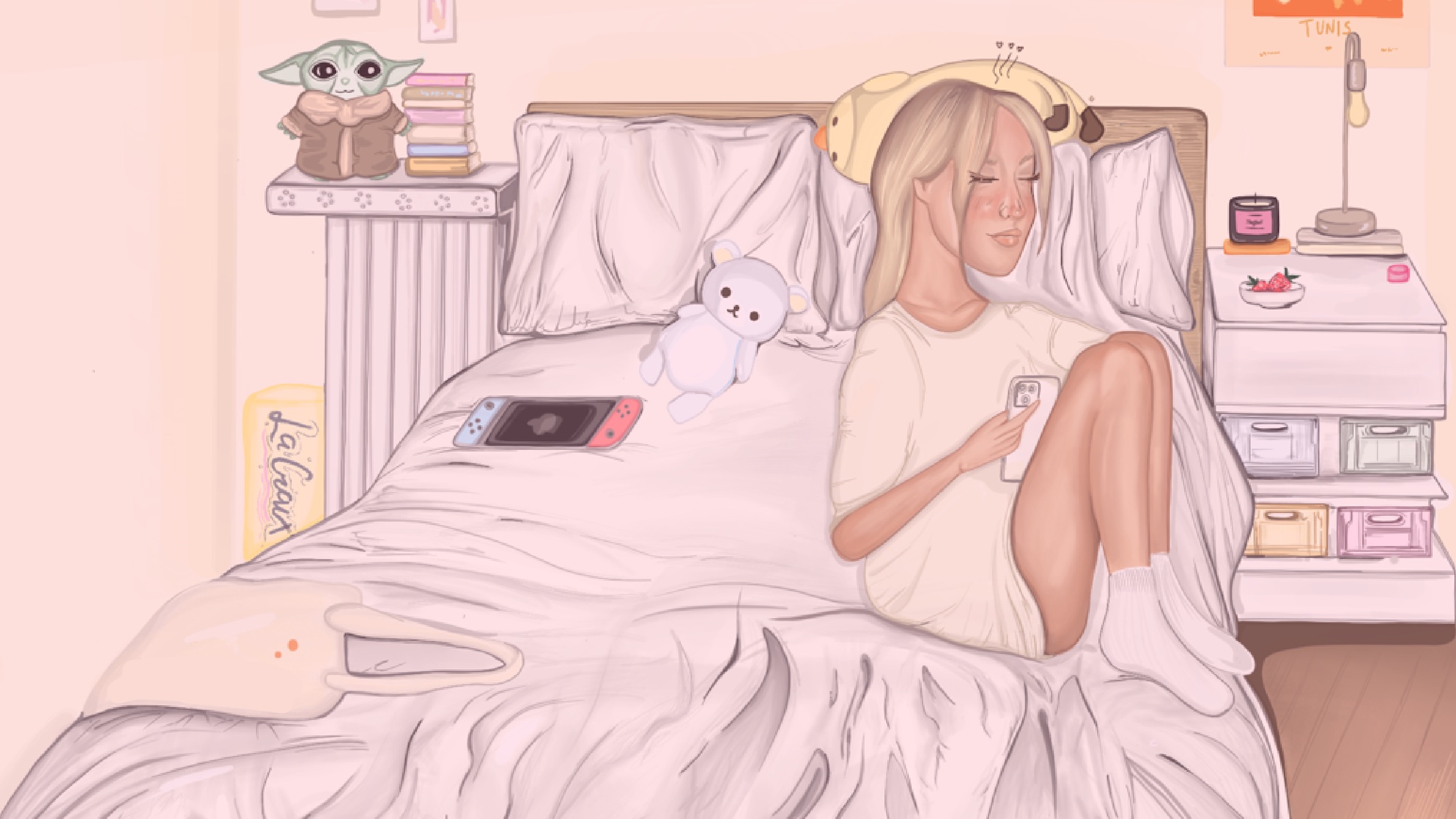
Lam also loves reading single-parent stories where the protagonist finds a partner that connects with their child."I like the idea of meeting people who you aren't related to by blood and connecting so deeply together that you can see each other as family. It's really cute," she says.
Due to the COVID-19 pandemic, which has left people trapped at home alone with little to do, many young people have turned to reading to pass the time. This reading renaissance, coupled with the rise of the hashtag #BookTok on TikTok, has young women readers driving up book sales, according to NPR’s Jim Zarroli. In July 2021, NBC News reported that videos with the #BookTok hashtag had been viewed around 12.6 billion times. The hashtag has become a "major force" for advertising young adult and contemporary romance books. Many books on #BookTok consist of steamy romances with plenty of sexual explicit writing, often referred to as smut.
To cope with the loneliness of missing her long-distance boyfriend who lives in England, third-year English student Dariya Ostrovska began to read romance books from #BookTok in the spring of 2021, after giving up reading for leisure in her mid-teens. She opts to read romantic novels in order to be "truly entranced" by the characters’ steamy romance.
She says she often finds herself daydreaming about the books she’s reading, so invested in them it bleeds into her daily life. Ostrovska remembers grocery shopping at Walmart and holding the basket as she walked aimlessly behind her mother, unable to hear a word she was saying. All she could think about was the steamy romance she was reading at the time."I'll be at the grocery store and all I can think about is, ‘Oh my god, I want to finish the book. Like what's going to happen next?’” says Ostrovska, who uses wanting to read her books as a motivator to get tasks and chores done.
Ostrovska says her favourite cliché is enemies to lovers because it makes readers work for the relationship and story. “There's a sense of accomplishment when the characters finally have that scene when they've either gotten together or they're like, ‘You know what, we're more similar than I thought we were,’" says Ostrovska.
Catherine Grisé, an associate professor in English and cultural studies at McMaster University, explains dramatic tension in stories is required to keep them interesting. That’s why enemies to lovers and domineering male characters are such a popular cliché. "Enemies to lovers and the good-girl-bad-boy is a great way to up the tension in the relationship because they're not working towards the same purposes at the beginning, but they have to get there through the story," said Grisé.
While Rachel Pierce*, a third-year international relations student at the University of Toronto, also enjoys enemies to lovers, she gravitates towards stories set in the Regency era. In these stories, there's less emphasis on overt sexuality and more on building relationships through conversation and traditional courtship, where the romance is built on appreciating the characters’ attributes.
The British Regency era lasted from 1811 to 1820. Fanfiction writers’ introduction to this period is through romance writing by authors like Jane Austen, whose plots often explore enemies to lovers and “debuting” into society through a marriage that increases the social standing and economic security for the woman.
As a sexual assault survivor, Pierce hesitates to read books or fanfiction containing domineering and aggressive dynamics in sexual romantic relationships. "I like when people are bonding not with a romantic, immediate response, but rather through shared experience, through either trauma or some kind of experience that really enables them to grow as individuals and develop respect for each other," she says.

Grisé says humans are hard-wired for stories, explaining that people get satisfaction from seeing patterns repeated and reused with unique twists. "For most of us, we need to have those things that tap into the familiar well of symbols, experiences and archetypes. It's satisfying to see those stories told well and to see a take or spin on it that still follows those same models," said Grisé.
"It can give you something that seems reassuring and something solid to hold on to."
*Last name has been changed to protect the source’s privacy and safety
